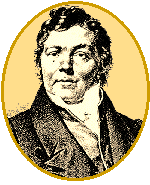

Hummel was born in 1778 to a musical family living in Pressburg, a lively town at the intersection of Austria, Slovakia and Hungary. When his father was appointed conductor of Schikaneder's theater in Vienna, the boy became a pupil of Mozart, and after two year was encouraged by his master to tour Europe. He was then ten years old. Four years on the road throughout northern Europe and Britain brought Hummel international fame, but upon returning to Vienna in 1793 the fourteen years old chose to retire from the concert stage and devote himself to studying theory and composition. Although he now performed only at private events, Viennese music lovers split into two camps of piano playing, centering upon Hummel and the slightly older Beethoven.In 1804, Hummel, recommended by Haydn, became Konzertmeister to Prince Nikolaus Esterhazy, despite having a compositional reputation centering almost exclusively on the piano and chamber music. Now he found himself writing sacred music, occasional music, and operas. The intense pressures at the Esterhazy palace in Eisenstadt, however, did not deter him from pursuing a career in Vienna, thirty miles away. Unfortunately, the more the fashionable ballrooms resounded to his minuets and waltzes, the more irritated the Prince became at Hummel's purported dereliction of duty. After a final rupture of his relationship with the Prince in 1811, Hummel moved back to Vienna, installing himself as a popular teacher, a society composer, and a family man.
In 1814, the endless parties of the Congress of Vienna provided an ideal arena for musicians, and tempted Hummel to re-enter the concert stage. At one party Hummel left the connoisseurs in awe as he improvised a long suite of waltzes based on themes from a concert earlier that evening, climaxing with a grand fugue in waltz time. After hearing Hummel, young Giacomo Meyerbeer abandoned hopes of a concert career. Success piled upon success ; but Hummel, married with two children, worried increasingly about financial security, and sought a new court position. After a disastrous year in Stuttgart ( 1818 ), he found a perfect job as Kapellmeister to the Grand Duke of Weimar. In that picturesque cultural center nestled in the heart of the German countryside, he had a small but excellent orchestra, an opera company, and superb theater. Best of all, his contract gave him three months annual leave right at the height of the European concert and social season.
Hummel, now without rivals as a pianist ( Beethoven could no longer perform ), and with an excellent reputation as a composer, toured almost every year during the 1820s and early 1830s, ranging throughout Europe, from Russia to Britain and France.
New claimants to the musical throne - such as Ignaz Moscheles - did little to retard Hummel's progress. In 1831, however, his popularity abruptly ended. The public, dazzled by the super virtuosity of Liszt and Paganini, abandoned the elegant, refined playing of Hummel. To his credit he did not join the many of his contemporaries who affected the athletic style of the new generation, and although at his death in 1837 many regarded him as a relic of the past, he was revered by true music lovers as the last representative of a great epoch.It would stretch a point to make Hummel into a second Beethoven. Nevertheless, his music is superbly and elegantly wrought, full of good melodies skillfully handled, and never trivial. In many respects his classical style already incorporated the complexities and passions of the Romantics who were to displace him, and his position astride two generations makes him a compelling figure for lovers of nineteenth-century music. Quite naturally, he wrote with a special flair for the piano ; like most virtuoso-composers, he played only his own music ( although he conducted works by many others ). However, he also left a considerable vocal and choral output, the result in part of his responsibilities to the various courts that employed him. The fact that he never wrote a symphony may be explained by his own admission that he found Beethoven's talent overwhelming.
Hummel's reputation was eclipsed for many decades, and even now, with a substantial revival, he is still best known for the Piano Concertos in A minor, Op.85, and in B minor, Op.89. The vast body of his music for piano, however, remains largely unavailable. Pianists will find many compositions worth studying and performing, and students of the history of music will gain a new source for insights into the fascinating world of early nineteenth-century bourgeois society and its entertainment's.